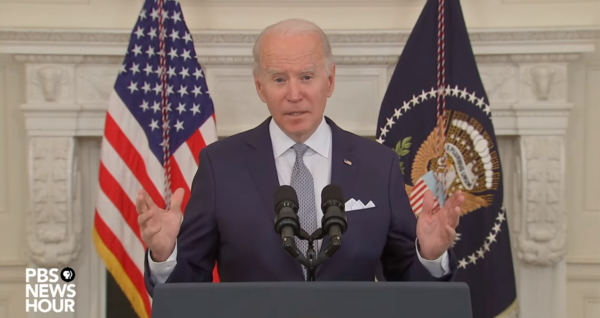
By Dave Workman
Editor-in-Chief
Once again in the wake of a mass shooting—this time at an outlet mall in the suburban community of Allen, Texas—President Joe Biden has rushed to demand action from Congress in the form of a ban on so-called “assault weapons,” and according to Business Insider, the president also wants Capitol Hill to repeal the Protection of Lawful Commerce in Arms Act (PLCAA).
Biden further wants a law requiring so-called “safe storage” of firearms.
But it is not clear whether any of these measures would have prevented the Saturday rampage, which was brought to a halt by a police officer who was at Allen Premium Outlets on another matter when the shooting erupted. The officer fatally shot the suspect, identified as Mauricio Martinez Garcia, 33. He was reportedly armed with a semiautomatic rifle.
There was no small irony in the president’s prepared statement in which he said, “Jill and I are praying for their families and for others critically injured, and we are grateful to the first responders who acted quickly and courageously to save lives.”
At the same time, according to Business Insider, he was calling out Republicans “for sending ‘thoughts and prayers’” in the aftermath of the shooting.
According to Politico, Biden vowed he would sign new gun control legislation immediately if Congress would pass it, but the likelihood of gun ban legislation is remote. As the article noted, “Numerous gun control measures have repeatedly stalled in Congress in recent decades, though legislation was approved in June 2022 and signed by Biden that was intended to keep guns out of the hands of people experiencing mental health crises.”
The gunman killed eight people and wounded others, according to published reports. No motive has yet been established, but the shooting provided Biden and other gun control proponents to renew their demands for stricter gun control laws.
But writing at Reason, Senior Editor Jacob Sullum observed, “Assault weapon” bans, which typically cover specific models along with features such as adjustable stocks, pistol grips, flash suppressors, and barrel shrouds, have always been logically dubious. And under the constitutional test that the Supreme Court recently established, they look more legally vulnerable than ever.”
Sullum referred to a ruling by a federal judge in Illinois that went against that state’s ban on so-called “assault weapons.” U.S. District Judge Stephen P. McGlynn granted a preliminary injunction against the law, in an action brought by the Second Amendment Foundation and Firearms Policy Coalition.
However, McGlynn’s order was reversed by Appellate Judge Frank Easterbrook at the U.S. 7th Circuit Court of Appeals.



